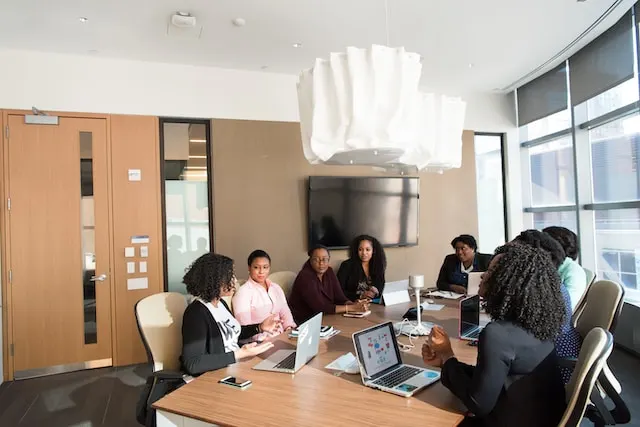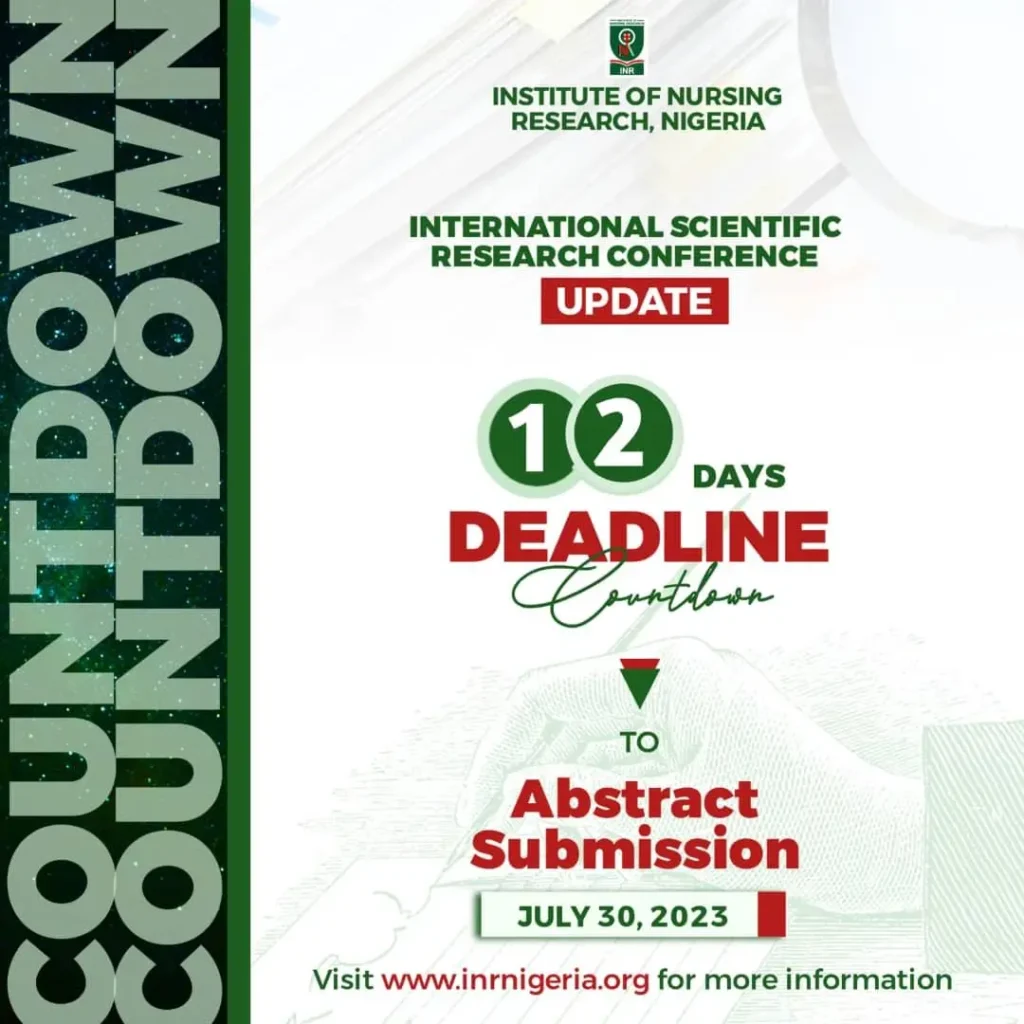A comprehensive report of the free academic seminar organized by the Institute of Nursing Research Nigeria (INRN) in partnership with the Nigerian Universities Nursing Students Association (NUNSA) and National Association of Nigerian Student Nurses and Midwives (NANSNM).
Damilola Rhoda and Ololade Ruth moderated the seminar.
The virtual seminar held on 17th of June 2023 at 10 am with the moderator welcoming the participants and followed it up with an opening prayer.
Representatives of the three partnering organizations gave the welcome address; Dr Akingbade Oluwadamilare, CEO of the Institute of Nursing Research, Nigeria; Ayam Samuel, the vice-president of The Nigerian Universities Nursing Students’ Association (representing NUNSA president); and Tijani Mojisola, the Zonal Coordinator of National Association of Nigerian Student Nurses and Midwives.
The seminar started with a pretest, followed by the first section handled by Dr Akingbade Oluwadamilare.
First Session: Overview of Nursing Research
Dr Akingbade Oluwadamilare

Dr Akingbade started the session with a popular quote: “In God we trust, but every other person must bring data.”
Therefore, conducting research is crucial in acquiring data that supports and validates ideas.
According to Dr Akingbade, questioning the question is the way to research.
He defined a research problem as a perplexing or troubling situation that a researcher wants to address through disciplined inquiry.
He emphasized that identifying the knowledge gap is important for conducting worthwhile research.
“Your research topic must be researchable; that is, it must be feasible in terms of time, resources and other factors”, He ended with these persuasive words.
A Q&A session was held after the lecture concluded.
Second Session: Research Methodology
Dr Yetunde Tola

She defined research methodology as a framework or guide for planning, analyzing and implementing research projects.
It encompasses research planning, hypothesis testing and question answering.
She stressed that research objectives and questions are fundamental at every step of a research study and should be the researcher’s focus.
In explaining types of research designs, she mentioned that the use of words, investigation of the phenomenon, collection of narrative data and flexibility in design characterizes qualitative research design.
Quantitative design, in contrast to qualitative design, focuses on numbers.
In the case of quantitative design, ideas or concepts are reduced to variables and the relationships between or among variables are tested.
Another pair, she mentioned, in the types of research design is the cross-sectional and longitudinal research designs.
In a cross-sectional research design, variables are identified at a single point in time, as opposed to a longitudinal research design that requires data collection at multiple points over time.
She added that there are retrospective and prospective research designs.
Retrospective studies look at how present events or phenomena are connected to past factors, while prospective studies examine how potential factors or variables identified in the present may influence future outcomes.
The former requires data containing past history, while the latter involves data projecting into the future, monitoring what the participants are doing for some time.
She emphasized that the research objectives and questions must focus on choosing the appropriate research design and conducting a standard study.
Additionally, she suggested that the research methodology should clearly outline the procedure for data collection.
Questions that will help clearly define the data collection method/procedure should be asked, such as, who are the respondents? How will they be approached or invited into the study? What kind of consent will they provide? How will they give consent? How will the data be collected? And who will carry out these activities in data collection?
The second session ended after Dr Tola responded to questions from participants.
Panel discussions commenced after a short break.
Panel Discussion: Experience of Cohort Members at the Institute of Nursing Research Nigeria Journal Club (IJC)
Anchor: Ololade Ruth
Panellists: Ayam Samuel, Tijani Mojisola, Obialor Joy

The panellists introduced themselves briefly.
They talked about how they got to know the journal club and how they joined.
The panellists were asked if the journal club made research easier.
They responded affirmatively and provided specific reasons for their answer. They cited various opportunities they had been fortunate enough to experience, including exposure to international connections, the chance to learn from some of the brightest minds in the world, mentorship, and networking, among others.
The panel discussion proved to be an excellent way for the attendees to get acquainted with the journal club, particularly for those who weren’t part of the journal club.
After the session, the next session started with the introduction of Dr Emmanuel Adesuyi.
Third Session: Manuscript Writing and Publication
Dr Emmanuel Adesuyi

Dr Adesuyi took the floor and did justice to the topic by reviewing what a research publication is, the differences between research reports and manuscripts and how to start writing.
He made the point that conducting research without putting it out for publication is a wasted effort and resources.
He defined research publication, according to National Institute for Health Research (2019) and European Commission (2020), as the targeted distribution of research evidence and intervention materials to a specific population, policymakers or clinical practice audience in ways that will facilitate research uptake in decision-making processes and practice.
According to Dr Adesuyi, the Major questions to ask when starting writing and publication are Who is your audience? Where is your audience? How do you reach this audience?
He further went on to state the importance of having a sound argument.
He added that academic papers advance understanding, knowledge, and practice in an academic field, and they do this by staging/presenting an argument.
He stated that the lack of an argument in a research paper is why most papers are rejected.
“An argument answers the question: “So what?”
It is what the writer wants to convince the reader of. And it is a unique part to be showcased in publication.
Choosing the appropriate journal is to identify the “location for the argument.”
He encouraged that rejection does not mean the paper is worthless.
Rather, it might mean the manuscript needs to be worked on, or an appropriate journal needs to be found.
He concluded that writing a journal article should be like a lawyer arguing a case rather than a detective collecting evidence.
Following the informative session with Dr Adesuyi, a Q&A session took place.
Conclusively, the participants responded to all the sessions with applause as they were impressed by the deliveries.
The participants took the post-test.
The upcoming international scientific conference of INRN was announced, along with the start of the intake process for cohort 6 journal club members.
Ruth Ololade gave the closing remark.
Everyone’s presence and active participation were appreciated.
The virtual meeting lasted for 4 hours 57 minutes and ended at 2:57 pm with 166 participants in attendance.
Reporting: Awoniyi Elizabeth, INR Editorial/Reporting Team.
We are excited to inform you that you can now register for our International Scientific Conference. Hurry up now and be the early bird! Register here.

Submit abstracts here.
Leave a Reply